”Two things are infinite: the universe and human stupidity;
and I'm not sure about the universe“
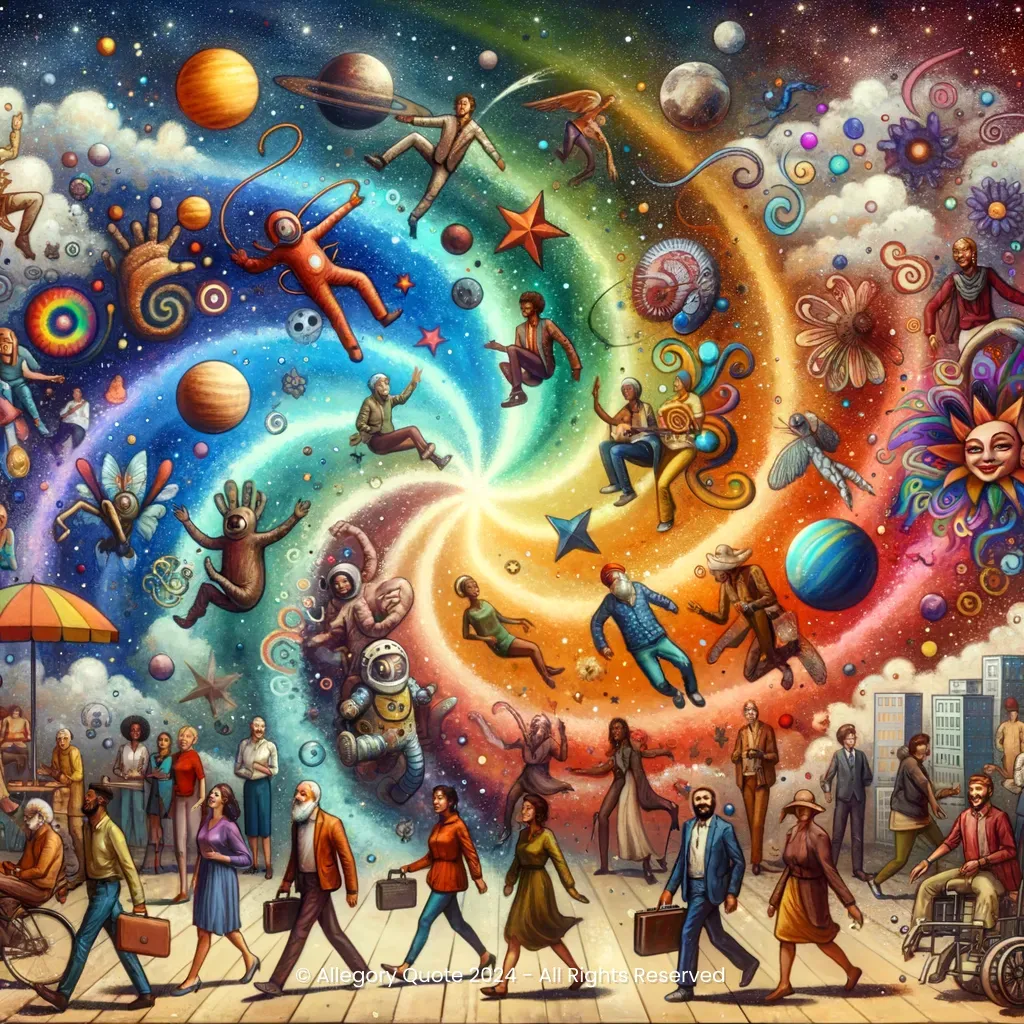
- Meaning
- The phrase suggests that human stupidity has no bounds, contrasting it humorously with the concept of an infinite universe. Philosophically, it raises questions about the limits of human understanding and the common follies that people engage in, often leading to the argument of whether human intelligence truly progresses over time. Psychologically, it reflects on cognitive biases and the persistent irrationality observed in human behavior.
- Allegory
- The image elements reflect the balance between the infinite cosmos and human folly. The whimsical behaviors highlight the lighthearted aspect of recognizing our imperfections, while the vast universe signifies that despite these follies, there is an unending quest for knowledge and understanding. Together, they invite viewers to appreciate both the beauty of the universe and the humor found in human nature.
- Applicability
- This phrase can be applied to personal life by encouraging humility and self-awareness. Recognizing our own potential for folly can lead to more thoughtful decision-making and a greater tolerance for the mistakes of others, serving as a reminder to approach life with a sense of humor and flexibility.
- Impact
- Einstein's statement has sparked significant discussions regarding the limitations of human reason and creativity. It is often quoted in debates on intelligence, politics, and science, highlighting the irony and complexities of human nature. The phrase is frequently referenced in educational and intellectual discussions, underscoring the idea that critical thinking is essential in combating ignorance.
- Historical Context
- Though the exact date of this specific phrasing is unclear, it arose in the early 20th century, a period marked by rapid scientific advancements and shifts in thought, heavily influenced by the ideas of relativity and existentialism. This context speaks to the dialogue surrounding human understanding of the universe versus the unpredictability of human behavior.
- Criticisms
- While most view this quote humorously, some criticize it for undermining human capability by labeling it as 'stupid.' Critics argue that this perspective may promote fatalism or discourage critical engagement with social and intellectual issues, suggesting that human potential is often underestimated.
- Variations
- Variations of this phrase exist in other cultures, often reflecting on the folly of humanity. For example, in Chinese culture, the saying 'After the storm comes the calm' suggests a cyclical understanding of human folly and recovery, with interpretations showing that folly is seen as a part of life but not infinite in the same way as Einstein suggests.
-
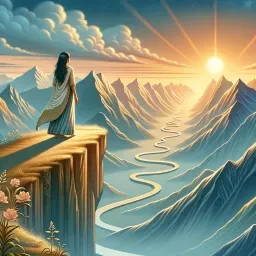
Once we accept our limits, we go beyond them.
-

Peace cannot be kept by force; it can only be achieved by understanding.
-
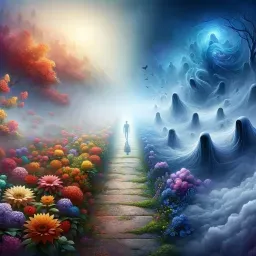
Reality is merely an illusion, albeit a very persistent one.
-
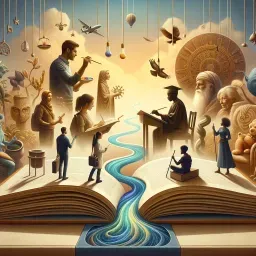
Education is what remains after one has forgotten what one has learned in school.
-
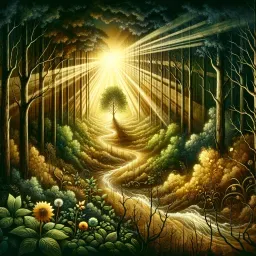
In the middle of difficulty lies opportunity.
-

Only a life lived for others is a life worthwhile.
-
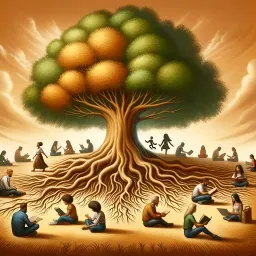
The only source of knowledge is experience.
-

Always be yourself. Unless you can be Batman, then always be Batman.
-

It is the supreme art of the teacher to awaken joy in creative expression and knowledge.
-
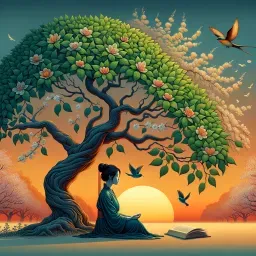
I live in that solitude which is painful in youth, but delicious in the years of maturity.
-

You cannot reach the dawn without passing through the paths of the night.
-
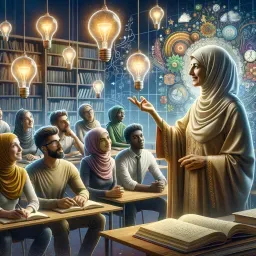
If you can't explain it simply, you don't understand it well enough.
No Comments